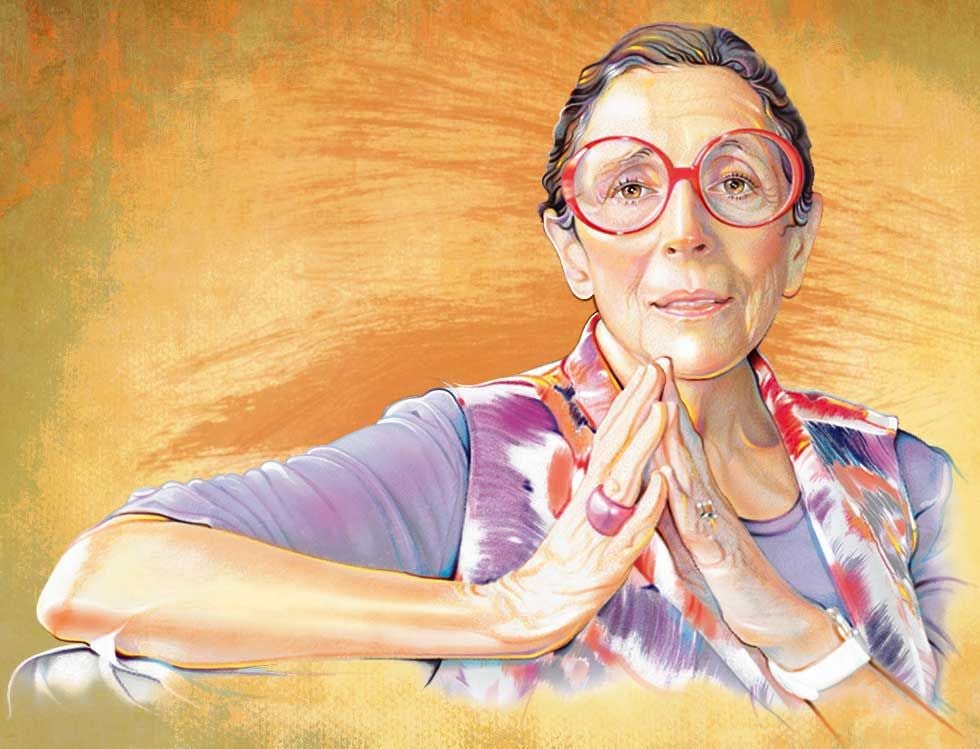As a physician, a parenting-through-the-life-cycle columnist and an octogenarian myself, I feel pretty qualified to write about health issues in the geriatric crowd … though I suspect many of my readers are long past the age a pediatrician would accept them as patients.
Aging brings about many wear-and-tear problems to virtually all of us. Arthritic joints, fragile skin, diminishing eyesight and hearing, balance problems, minor memory loss, crumbling teeth, etc. All these symptoms are very common, but don’t think of them as a “disease.” They occur because we were lucky enough to have survived to old age and our body is wearing out. Just think of the number of times we have used our thumbs or knees — no wonder these joints have become arthritic!
Doctors cure or try to cure diseases. They cannot cure aging. But they can help us stay healthy, advise us how to deal with the inevitable problems of aging and take care of us when we get sick.
Our current health-care system is pretty good for those of us on Medicare. But the Tucson area has a shortage of primary-care doctors, the internists, geriatricians and family practitioners we go to for our annual physical or when we have a problem.
Here are Dr. Heins’ suggestions for health care in the geriatric set:
Every one of us should have a primary-care doctor. If you don’t, find one as soon as you can. How? Word of mouth from friends is helpful. Some doctors have waiting lists for new patients. Sign up if you have heard good things about the doctor.
Think of your doctor as your partner. Don’t be a silent partner. You may protest, I’m not a doctor! But you know yourself better than anybody else does. Keep track. Write down any problems before you go to the doctor. I do an assessment of me before I go to the doctor. I evaluate me from my head to my feet, the way I was taught in medical school to do a “review of systems” on patients. I take this list to my doctor and jot down what she says about each problem. Also take a list of your medications, both prescription and over-the-counter. This list, with the names of all your doctors as well as next of kin information, should be in your wallet at all times, as emergencies do happen.
I keep a medical file on myself. After every doctor visit I file the summary my doctor gives me along with my notes. I glance at this before I go to my doctor or another health professional like a dentist or a medical specialist so I can fill out the health questionnaires they usually ask for. I also file results of lab tests and X-rays
Doctors have their own language and often speak in initials as a shortcut. Good docs will translate for you but, if not, ask. A friend was discharged from the hospital where she was treated for pneumonia. She was called by her doctor’s office after a follow-up X-ray was read and told her chest was clear. My friend had expected to hear her pneumonia was better and, though it was, she still worried. “What does that mean?” are four words to use when we do not understand a health professional.
Fortunately, we don’t catch a cold every few weeks like kids do, but we sure can be laid low by pneumonia, shingles or flu, all of which can be prevented or made less severe by immunizations. Keep all of your immunizations up to date and file the information. Once upon a time, which I actually remember,there was nothing doctors could do for most infectious diseases. The treatment and prevention of infectious diseases is one of the reasons for our longevity.
Many surgical procedures and medications that save lives today were not invented or perfected when I was in practice. Diseases of the heart or cancer or painful hips and other joints can strike and may require a referral to a specialist. Sometimes after treatment you will be referred back to your primary-care doctor. Whether you continue to see both the specialist and your primary or just your primary, make sure that both know about all of your medications.
One question I get from both parents of young children and the elderly is, “When should I call the doctor?” Most of us know what a medical emergency is (the sudden onset of difficulty breathing, loss of consciousness, uncontrolled bleeding, trouble speaking or moving, etc.) and we know how to call 911.
What about when you feel sick and wonder whether your doctor should see you? I told parents to use the “Three P’s” to decide. The first P stands for Personal Pattern. Do you always cough like this when you get a cold, or is this a cough like you never had before? The second P is Persistence. Does the pain you felt in your wrist after typing for a couple of hours go away, or is it sticking around? The third P is Progression. Is the symptom getting worse? If you are in doubt, call the doctor. I was once miserable, but not in an emergency, so I went to an urgent care center1 . I was diagnosed and treated for the flu and then called my own doctor to make a follow-up appointment.
What about online advice? I felt uncomfortable answering a parent’s medical question without examining the child. I told parents I could give generic advice about an illness, but, for prescription advice, the child had to be seen. It’s OK to use the internet to get general information, provided you go to a reputable source. But if you seek specific medical information about a sick child or your sick self, call the doctor.





